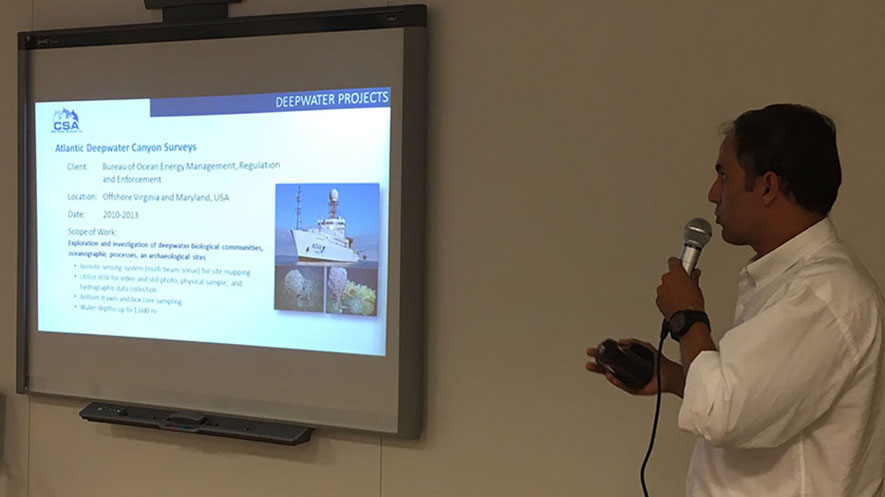Runde Environmental Centre AS (REC), Innovation Norway, and Research Council Norway, in collaboration with the research council in Brazil (FINEP), recently organized a workshop to strengthen cooperation between companies and institutions involved with mapping and environmental monitoring in deep-sea.
The meeting had 51 participants from different universities, public regulators, R&D institutions and environmental consultancy companies from Brazil. During the workshop, participants formed a Brazil cluster to enable companies and researchers to strengthen new networks. Rune Andersen from Innovation Norway and the Research Council was very supportive in planning and organization of the event.
During the workshop, CSA Ocean Science presented ROV data collection and sampling related to benthic communities and their potential impacts, along with case studies. CSA plans to collaborate with this international scientific cluster to develop and integrate multi-disciplinary ROV data aimed at better understanding and monitoring diverse benthic communities.
A New Cluster of Companies
The workshop was held first week of February, in Brazil. Companies and institutions presented themselves and their deep-sea experience. The R&D sector lead by FINEP were very positive and interested in developing a new cluster for the environmental monitoring in Brazil related to the oil and gas sector.
Representatives from the Ministry of Mines and Energy and the Ministry of Environment in Brazil discussed possibilities to improve the monitoring and research of deep-sea.
Daniel Jones from the Serpent Project (Southampton University) concludes that best-practice common procedures could be developed and that could be used by all oil and gas companies, subsea companies and R&D institutions.
“Sharing and coordination of contractual terms for data acquisition sub-contractors would be greatly beneficial,” says Jones.
The DeepSea International Consortium (DSIC) aims to develop a new workshop in the last half of this year (2017) in Norway, to consolidate the network with Norwegian companies and researchers as well. The DSIC will meet again during the annual November Conference in Rio de Janeiro, as a follow-up event.
Follow-up activities
Runde Environmental Centre will be coordinating the work. Our marine biologist, Claudia Erber, will be responsible for this.
“We shall now work to include other interested Norwegian institutions and companies in to the new network”, says Erber.
REC has been working on this network since last year in an effort to improve cooperation between Brazil and Norway.
Rune Andersen is very impressed with the high quality of professionals involved in deep-sea activities in Brazil and optimistic about the cooperation.
“The cluster will increase competitiveness through long-term internal and external collaboration, between companies and R&D institutions,” says Andersen.
The general manager of Runde Environmental Centre, Nils-Roar Hareide, sees great opportunities for developing research on environment and climate in deep-sea.
“There exist plans to explore a range of new oils fields at depths of 2000m and more in Brazil. Brazil will then be at forefront of development of deep-sea technology and research at environment and climate at deep-sea”, says Hareide.





